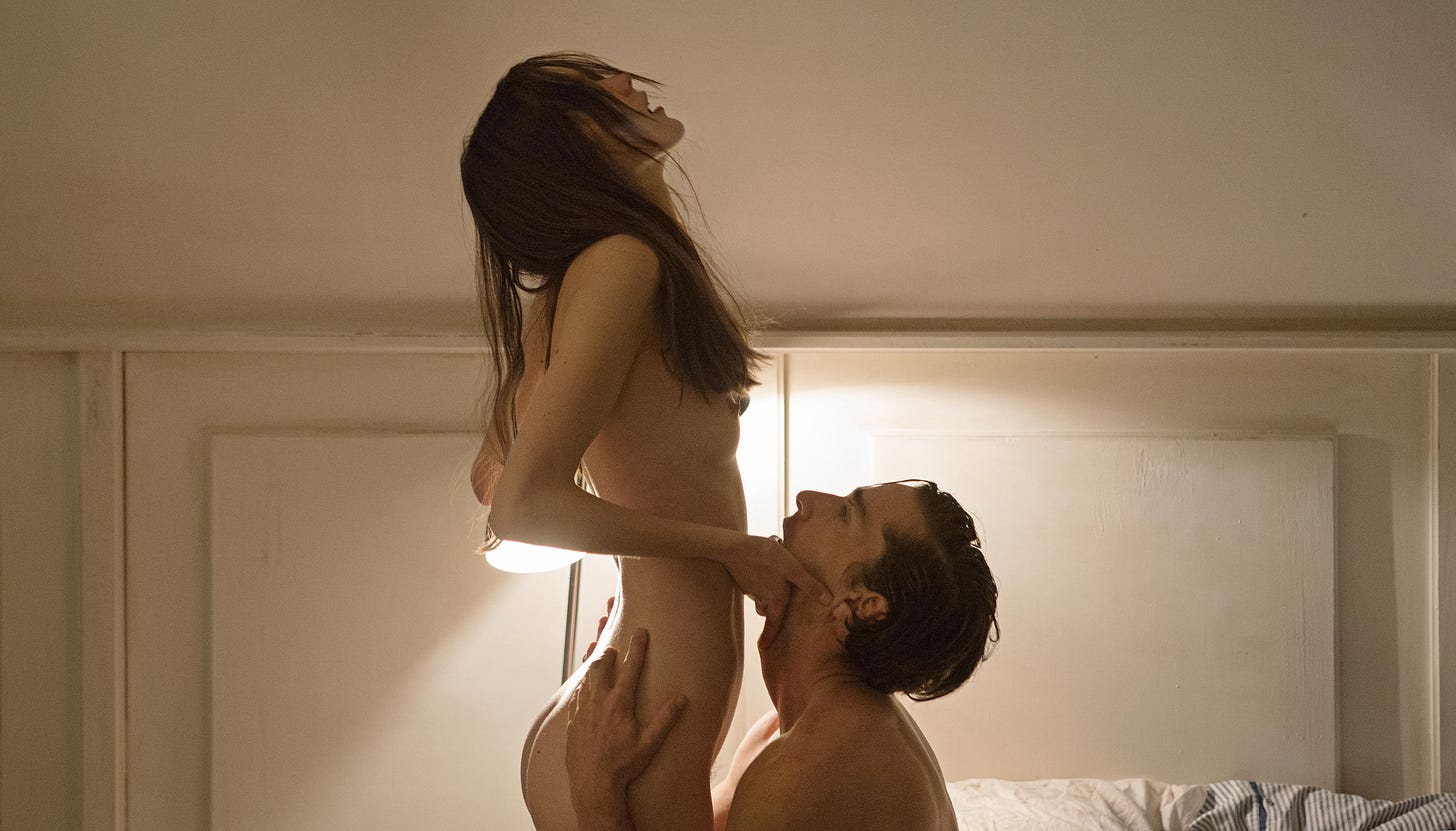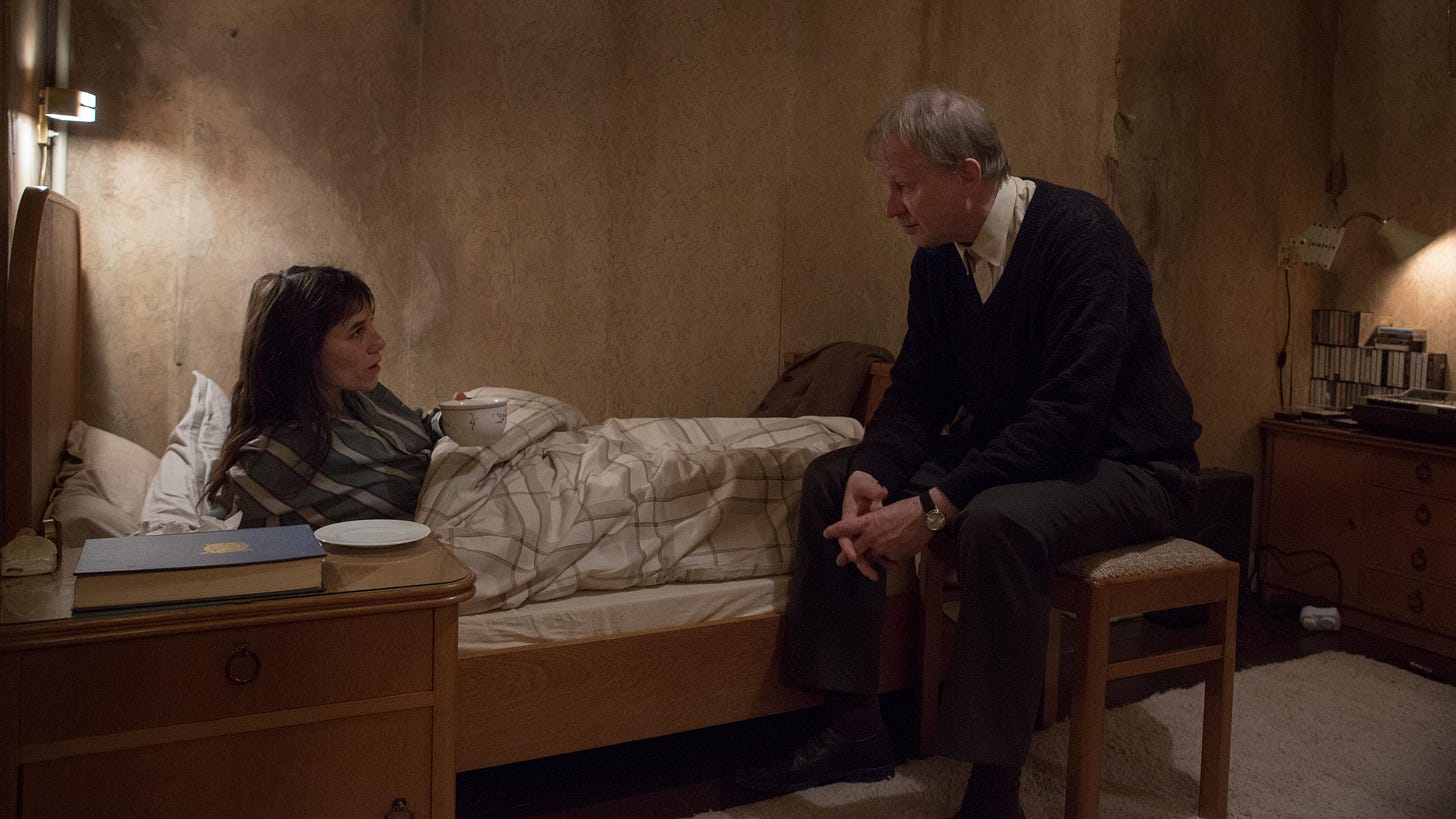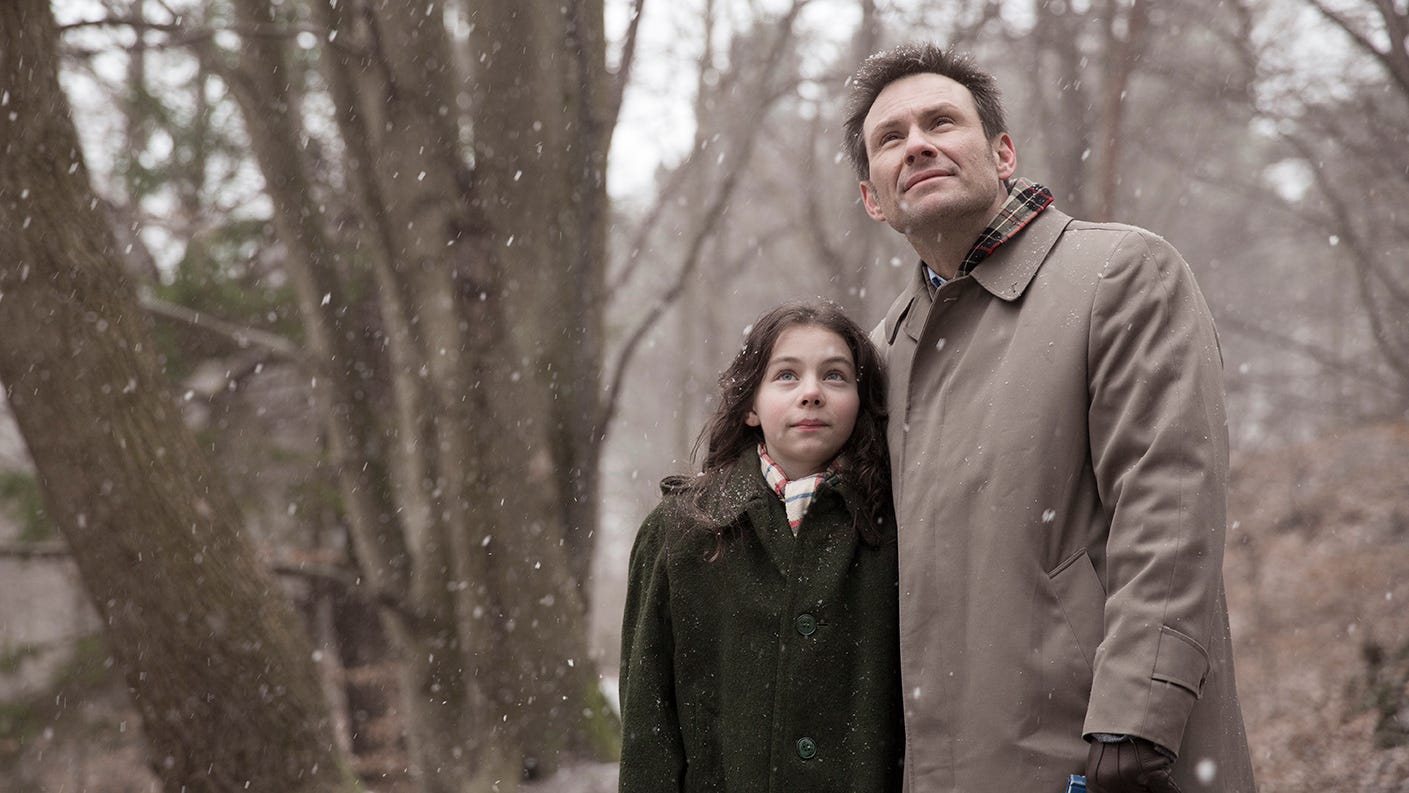Spoilers for Nymphomaniac, Parts One and Two (2013). Trigger warnings for discussions of explicit content, sexual assault and abortion.
Lars von Trier is no stranger to controversy, so it should have been no surprise that his film about sexual awakenings and sex addiction was so confrontational. Rather than erotic, von Trier turns the explicit moments into something of a chore, especially as the experiences of the older Joe (Charlotte Gainsbourg) move from pleasure to discomfort and need, through assaults and abortions.
In the five-and-a-half-hour director’s cut especially, the sexual scenes are not titillating interludes but rather depressing moments of desperation that shape the mental state of the lead. The director seems to have a complicated relationship with sex. Harking back to Breaking the Waves (1996), von Trier views sex as two sides of the human condition, bringing our best and our worst urges.
Take for example, in Breaking the Waves where the pious, virginal Bess (Emily Watson) is encouraged by her paralysed husband (Stellan Skarsgård) to take lovers in his place – a decision that initially brings joy but deteriorates into violence before she meets the villainess trawler captain (Udo Kier). Similarly, Antichrist (2009), part of the same Depression Trilogy as Nymphomaniac, intercuts the passionate throes of a husband and wife (Willem Dafoe and Gainsbourg) with the accidental death of their child and rapidly turns ultraviolent and deeply disturbing as the pair try to manage their grief.
On the surface, Nymphomaniac also plays on this dichotomy. The imbalance of power that sex often brings; issues around consent and female pleasure, are on full display throughout a multitude of sexual encounters. Through Joe, von Trier gives voice to some of his most outrageous thoughts, from racially insensitive language, to how paedophiles should be viewed and more. In as much as von Trier can have fun, he appears to be playing with the audience, pushing buttons to prompt guilty laughter, utter shock and walkouts.
Like Breaking the Waves, as well as many of his films, including Dancer in the Dark (2000) and Dogville (2003), he also blends the objective with the subjective; blurring the lines between the experiences we believe the character went through, and others that are exaggerated in the telling due to their heightened emotional state.
Nymphomaniac is arguably the most blatant example of this in von Trier’s filmography due to the setup. Having been assaulted by her protege (Mia Goth) and ex-husband Jerôme (Shia LaBeouf), Joe is discovered by Seligman (Skarsgård) and taken to his home to recover. Throughout one night, she details her life from childhood up until the present day.
The film – and therefore Joe’s life – is split into eight chapters, most of which are titled after items she sees in Seligman’s apartment. This implies an element of fictionalisation on Joe’s part, far from the honest and true retelling that she claims it is. She argues at various points that the events she describes make her a bad person, something that Seligman argues against. The two characters are written as representations of von Trier’s feelings towards sex.
As Joe tells her story with a view of portraying herself as a selfish, unforgivable person, it’s already apparent that she is skewing the facts to tell the story subjectively. This is more blatant in that elements from the apartment are shoehorned into the narrative – be it types of fishing bait, or religious iconography, which give the film a cohesive narrative feel but make Joe an unreliable narrator.
Seligman even calls her out on multiple occasions; noting that some of the coincidences in her stories are too far-fetched for even the most gullible listener to believe.
Yet there are moments where the viewer can deduce that they are seeing the reality of Joe’s situation. These are more prevalent in Part One, where we see a younger Joe (Stacy Martin) interacting with her father (Christian Slater). The two share a close relationship – although von Trier never goes as far as to suggest it is inappropriate.
Much of the stories about her father are joyful experiences, with him teaching her about the different trees in their local woodland and telling childish stories to help her remember the details. Yet when Seligman brings up Edgar Allan Poe and his death from delirium tremens, Joe remembers her father’s deterioration and death.
Shot in stark black and white, it’s a tonal shift from the rest of the film, with both Slater and Martin in top form. Joe is the only one to visit him during the final days and sleeps with multiple men in the hospital to distract herself from her father’s suffering. Throughout most of the film, Joe has described her nymphomania to squeeze every drop from life.
“Perhaps the only difference between me and other people was that I've always demanded more from the sunset; more spectacular colours when the sun hit the horizon. That's perhaps my only sin.”
Yet as her father dies – potentially the only man with whom she has not expected anything from or been expected to perform for – Joe resorts to sex to numb the pain. The change in cinematography and the lack of pleasure that Joe takes from the hospital sex scenes give us an indication that this, perhaps more than any other moment in the film, is being told exactly as it happened.
This moment of truth, in a film that takes great joy in toying with its audience, humanises Joe and allows us to continue with the story. It’s perfectly placed as well to bring about the change in tone between the first and second half. Where the first half has more laughs, and is more about the joy of sex, the second half starts with Joe losing the ability to have an orgasm and proceeds into far darker territory before the end.
Death and sex are two natural things and are often placed at opposite ends of a spectrum – with sex traditionally representing life, or at least the start of it. Nymphomaniac pairs these two moments to show a loss of true innocence in Joe and allows us to trust her for a little longer.
Writer/Director: Lars von Trier
Starring: Charlotte Gainsbourg, Stellan Skarsgård, Stacy Martin, Shia LaBeouf, Christian Slater, Jamie Bell, Uma Thurman, Willem Dafoe, Mia Goth










